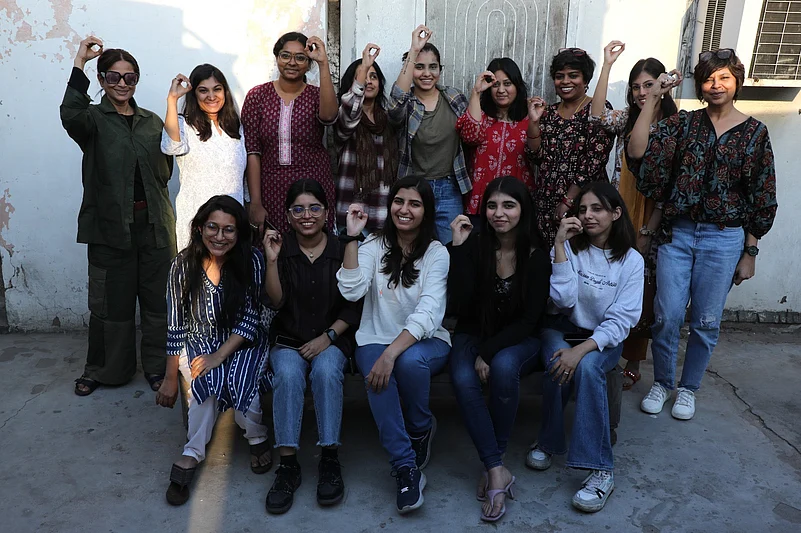In the world of media, the contribution of women journalists has been tremendous. However, active participation by women has remained dismal. Like many other industries, women in media have struggled to climb the ladder. While a wide range of issues are covered by newsrooms, little is spoken of the gender disparity within media houses.
Outlook Leads By Example For Women Representation In Indian Newsrooms
Women leading newsrooms should not be the exception but a norm.

The gender disparity does not stop at the debate of equal wages but also extends to hiring tendencies that often prefer men over women and queer people. A lot of the times, women in leadership roles are not given the same opportunities while covering hard news, reporting from sensitive regions and doing important interviews.
According to a study conducted by Reuters Institute from 12 global markets, only 22 per cent of the 180 top editors across 240 major online and offline outlets covered are women, increasing by a nominal one per cent from 2022 to 2023. This is despite the fact that, on an average, 40 per cent of journalists in these markets are women. This is not to say that there has been no growth in terms of women representation in these markets, but the change is not always in the direction of greater gender parity. Particularly in high profile beats such as business and economy, men’s share of voices is significantly higher than women’s.
Going by the report, while US ranks the highest in women top editors in newsrooms, at 44 per cent, it is still down from 50 per cent in the previous year. In half of other markets, there has been some improvement compared with past years, but many others, particularly South Africa, has seen a significant decline.
Meanwhile, in India, 87 per cent of editors and proprietors at top English and Hindi newspapers are men, according to a report by Newslaundry on Gender Representation in Indian Newsrooms. It further states that only about 26.2 per cent of articles published in English language newspapers were written by women, whereas just 14 per cent of the Hindi newspaper articles were by women authors.
Author Luba Kassova, who also founded AKAS consultancy, writes in a report backed by the Bill & Melinda Gates Foundation that women are “significantly underrepresented in editorial leadership roles and news coverage and their voices remain muted in a global news industry still dominated by men”. The representation of top leadership plays a big role in how journalism is practiced and how it appears in society.
Women leading newsrooms should not be the exception but a norm. Therefore, it is important to track who the top editors are and document the extent to which they represent the wider public in all its difference and diversity.
Outlook stands as a pillar of women representation in Indian newsrooms with four top editors across its four magazines – Outlook English, Outlook Business, Outlook Money and Outlook Traveller. The organisation, like always, will continue to facilitate more opportunities for women and give them space to grow, evolve as mediapersons and become top voices.
- Previous Story
 Elections 2024: Ashok Tanwar Joins Congress Again; Sehwag Endorses Congress Candidate In Haryana
Elections 2024: Ashok Tanwar Joins Congress Again; Sehwag Endorses Congress Candidate In Haryana - Next Story
























